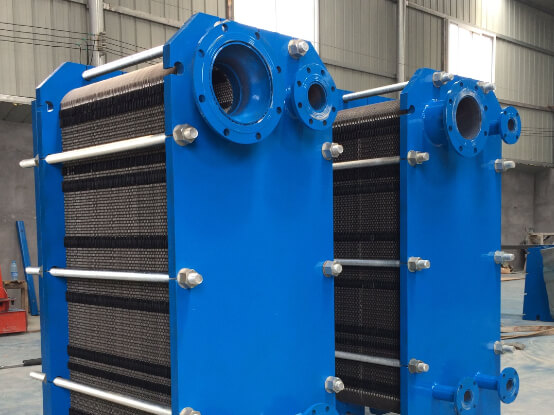In the world of industrial engineering, efficiency and durability are paramount. Among the array of technologies designed to optimize processes, titanium plate heat exchangers stand out as versatile workhorses. Their ability to transfer heat effectively across different mediums makes them indispensable in various applications, spanning from chemical processing to food and beverage production. In this article, we delve into the diverse realms where titanium plate heat exchangers excel, highlighting their adaptability and benefits.
Understanding Titanium Plate Heat Exchangers
Before delving into their applications, it’s crucial to understand the fundamentals of titanium plate heat exchangers. These devices facilitate the transfer of heat between two fluids, typically without allowing them to mix. The design consists of a series of titanium plates arranged in a stack, with alternating hot and cold fluid channels. When the hot fluid flows through one set of channels and the cold fluid through the other, heat is transferred from the hot fluid to the cold fluid through the plates, resulting in temperature regulation.
Chemical Processing Industry
In the chemical processing industry, where stringent requirements for corrosion resistance and temperature control are common, titanium plate heat exchangers shine. They are adept at handling aggressive chemicals and high temperatures, making them ideal for tasks such as condensing vapors, heating or cooling chemical reactions, and recovering waste heat. Additionally, their compact size and efficiency contribute to space-saving and cost-effective solutions for various chemical processes.
HVAC Systems
Heating, ventilation, and air conditioning (HVAC) systems are ubiquitous in both residential and commercial buildings. Titanium plate heat exchangers play a crucial role in these systems by facilitating the transfer of heat between the indoor and outdoor air streams. Their corrosion resistance ensures longevity even in harsh environmental conditions, while their high thermal conductivity enhances energy efficiency, reducing operational costs and environmental impact.
Food and Beverage Industry
In the food and beverage industry, maintaining precise temperatures during production and storage is essential to ensure product quality and safety. Titanium plate heat exchangers find applications in processes such as pasteurization, sterilization, and beverage cooling. Their hygienic design, resistance to fouling, and ease of cleaning make them well-suited for handling sensitive food products while complying with stringent sanitary standards.
Renewable Energy Systems
As the world shifts towards sustainable energy sources, titanium plate heat exchangers play a vital role in renewable energy systems. They are integral components in solar thermal collectors, geothermal heat pumps, and biomass boilers, facilitating the transfer of heat from renewable sources to heat storage or distribution systems. Their durability and efficiency contribute to the reliability and performance of these renewable energy systems, promoting a greener future.
Pharmaceutical and Biotechnology Applications
In the pharmaceutical and biotechnology industries, maintaining precise temperature control is critical for various processes, including fermentation, sterilization, and purification. Titanium plate heat exchangers offer the reliability, corrosion resistance, and thermal performance required for these applications. Their ability to handle high temperatures and aggressive cleaning solutions ensures compliance with strict regulatory standards while maximizing productivity.
Marine and Offshore Applications
In marine and offshore environments, where equipment is exposed to corrosive seawater and extreme operating conditions, titanium plate heat exchangers are invaluable. They are utilized in shipboard HVAC systems, seawater desalination plants, and oil and gas production facilities. Their resistance to corrosion and erosion, combined with their lightweight and compact design, make them ideal for offshore installations where space and weight limitations are significant concerns.
Automotive Industry
In the automotive industry, titanium plate heat exchangers play a crucial role in thermal management systems, including engine cooling, air conditioning, and battery thermal management in electric vehicles. Their lightweight construction, corrosion resistance, and efficient heat transfer capabilities contribute to improved vehicle performance, fuel efficiency, and reliability.
The versatility of titanium plate heat exchangers spans across a wide range of industries and applications, from chemical processing and HVAC systems to food and beverage production, renewable energy systems, pharmaceuticals, marine and offshore environments, automotive, and beyond. Their ability to withstand corrosive environments, high temperatures, and stringent operating conditions while delivering efficient heat transfer makes them indispensable in modern engineering practices. As technology continues to evolve, titanium plate heat exchangers are poised to remain at the forefront of thermal management solutions, driving innovation and sustainability across various sectors.
